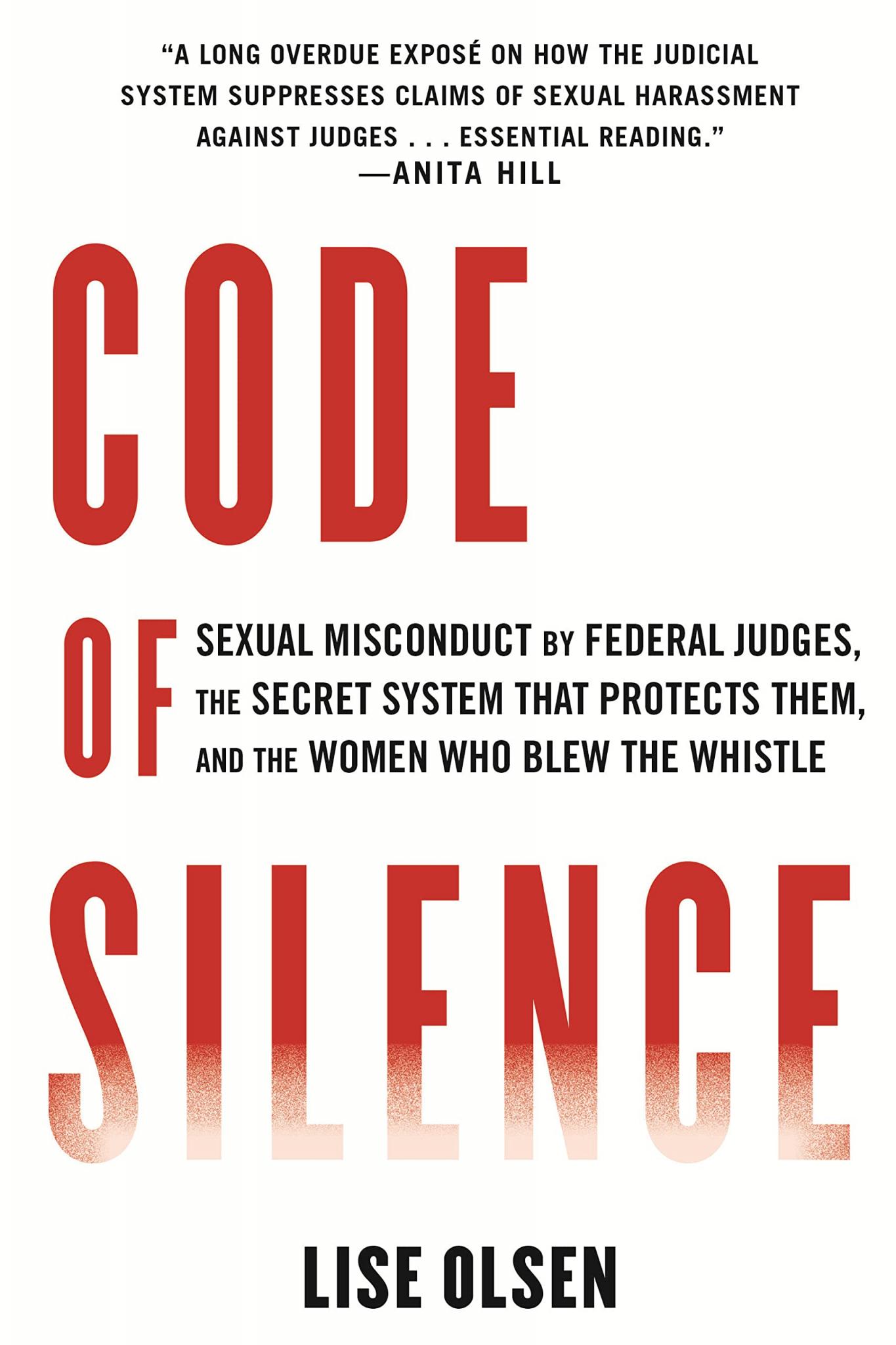
NONFICTION
Lise Olsen
Beacon Press
Hardcover, ISBN 978-0-8070-0867-6, 288 pages
October 26, 2021
Texas writer and investigative journalist Lise Olsen’s Code of Silence is a powerful indictment of how America’s judiciary system has long been able to cover up acts of sexual misconduct by federal judges, including assaults on members of their own staff. The book details how Olsen spent months uncovering facts, finding witnesses, and documenting sexual assault instances in enough detail to finally help send a U.S. district judge, Samuel B. Kent of Galveston, to prison.
In 2007, while working as a Houston Chronicle investigative reporter, Olsen began investigating rumors of sexual harassment and assault by Kent on women on his staff, including his longtime case manager, Cathy McBroom. Code of Silence recounts Olsen’s efforts to gather and verify enough information to publish news articles about the accusations and help encourage Congress to act.
Hundreds of federal judges across the nation currently hold lifetime presidential appointments to their benches. Under Article III of the U.S. Constitution, any judge or other “civil Officer of the United States” suspected of “Treason, Bribery, or other High Crimes and Misdemeanors” can only be ousted after being impeached in the U.S. House of Representatives followed by conviction and removal by the U.S. Senate, unless they resign first. Getting a federal judge to face impeachment can be exceedingly difficult. Also, the judiciary’s system for addressing complaints about incompetent or corrupt federal judges, the Judicial Conduct and Disability Act, was not established until 1980.
Olsen’s well-researched book spotlights a major flaw in that statute, noting: “Under the law, federal judges could secretly review complaints about each other and decide whether to take corrective or disciplinary actions in response to any ‘conduct prejudicial to the effective and expeditious administration of the business of the courts.’” That closed-door process, which is still in place, has been difficult to witness or document. And Olsen points out that even those who have filed accusations against a judge seldom have been able to observe or testify at a formal review hearing.
Federal court culture continues to protect “men at the top,” her book emphasizes. And several well-known federal jurists named in accusations apparently have avoided sanctions and stayed on the bench or retired with full pay. In some instances, individuals have remained judges and on the federal payroll even after being convicted of a crime and sent to prison.
The Galveston federal judge, for example, faced several felony charges related to sexual assault. Yet after a deal with prosecutors, “Kent pled guilty to one count of obstruction of justice,” Olsen notes. He received a 33-month sentence and was still a federal judge when he went to prison. The U.S. House, however, quickly impeached him, and several Congressional leaders convinced him to resign rather than wait for the Senate to remove him.
Code of Silence recently was named winner of the 2022 Texas Institute of Letters's Carr P. Collins Award for Best Book of Nonfiction. It also received the Investigative Reporters and Editors (IRE) 2021 Book Award. The IRE award’s judges stated in a news release that despite having “few public records and reluctant sources,” Olsen still managed to confirm and report on “previously undisclosed judicial sexual misconduct at the federal level. Her detailed writing educates the reader on just how hard it is for survivors to speak up about workplace sexual harassment and assault, particularly when the perpetrator enforces justice.”
Within this important book, the author provides some special focus on the personal courage and sacrifices required of the women who became whistleblowers and finally went public.
Lise Olsen is a senior investigative reporter whose work has appeared in the Texas Observer, InsideClimate News, and the Houston Chronicle, as well as in documentaries on CNN and A&E. Olsen has more than 20 years’ experience specializing primarily in crime, corruption, worker safety, and human rights. She has extensively covered federal judicial corruption sagas, including the initially secret sexual assault complaint and subsequent impeachment of a federal judge, as well as other misconduct cases. Her reports have inspired laws and reforms, spurred official investigations and prosecutions, restored names to unidentified murder victims, and freed dozens of wrongfully held prisoners. Follow her on Twitter (@lisedigger).
